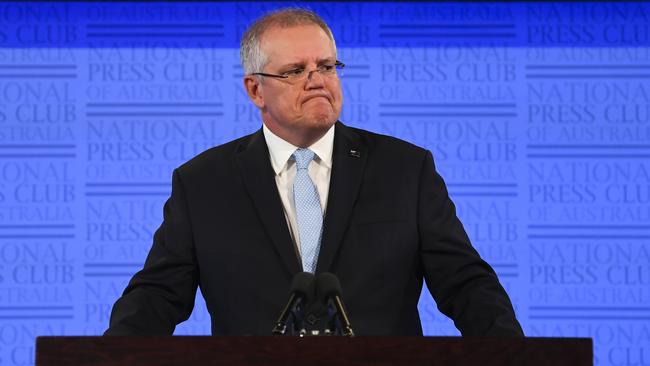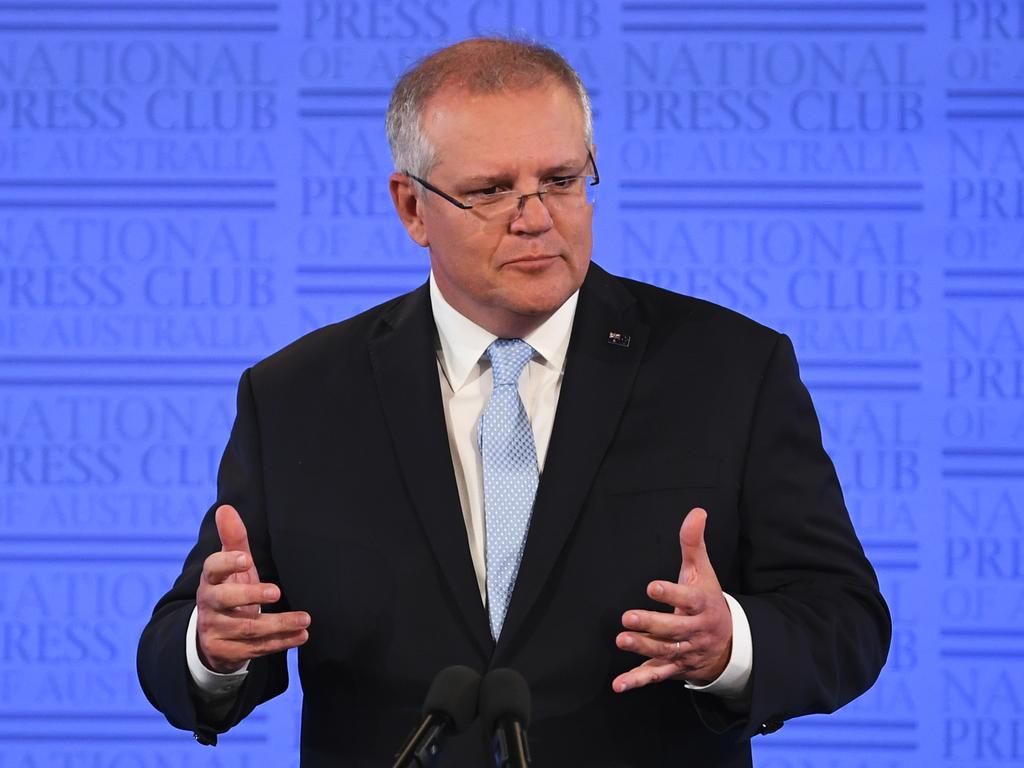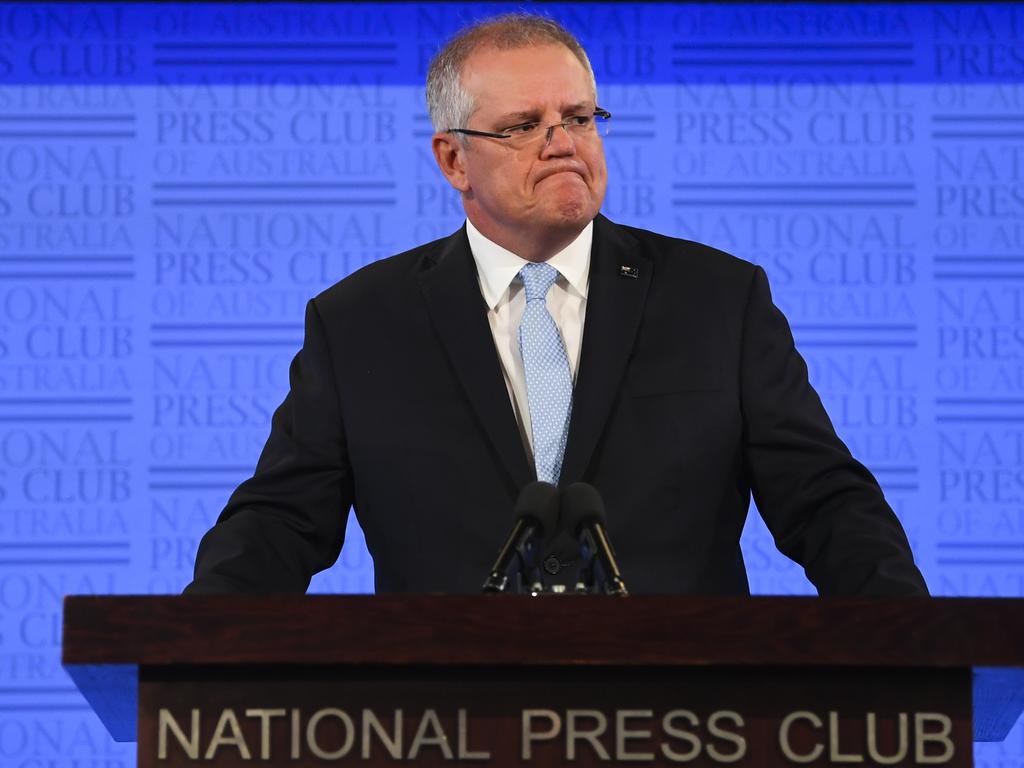
In doing so he has cast himself as the ringmaster of what up until now has been a circus of historical failures by previous governments.
In seeking a consensus between unions, employers, workers and the community, the Prime Minister is rewriting the political battlelines in a way that would have been inconceivable before this crisis hit.
Morrison is seizing an opportunity born out of catastrophe. The preconditions for long-lasting reform are unlikely to present themselves again.
Comparisons to Bob Hawke and the original Accord miss this point while glossing over the obvious fact that, this time around, Labor has willingly disinvited itself to the reform party.
Morrison is aware that the stakes are high. Without a reboot of productivity, the country faces a deep and long-lasting recession.
At its core, Morrison’s five-year economic plan is a redrafting of the fundamental laws of partisan politics.
He has sidelined the Labor opposition by dealing directly with the ACTU. He has embraced the states and territories as partners in a new federalism.
And he has bypassed the parliament in a reversal of process, seeking the unions and employers to reach their own compact, which would carry the weight of a wide-reaching consensus policy that the government, and community, would then rightly expect to be passed by the Senate.
Where conflict and ambition have prevented past attempts at serious structural reform to the industrial landscape, Morrison is unshackled from the ideology that has shaped a system he describes as broken through “tribalism, conflict and ideological posturing”.
He is redefining the Liberal Party as a movement for workers and employers, without abandoning the party’s guiding economic principles.
This presents Labor with an existential question. What is its purpose and who does it represent?
Morrison’s challenge now is to keep the unions and employers together in the room and drive an outcome. The pandemic has afforded him absolute authority over a partyroom that hasn’t been as united since the Menzies era. That is not to say there won’t be those hostile to the olive branch offered to the union movement.
But the wartime-inspired national cabinet has state and territory leaders as lead partners in the economic recovery with the commonwealth.
The coalescing force is an ACTU seeking a new relevance and primacy within the labour movement at a time when the community is hypersensitive to political conflict. In this context, Morrison’s call for all sides to “put down their weapons” will resonate deeply with ordinary Australians.
Sally McManus’s swiftness in signing up to the IR working groups was a profound moment that now stands in contrast to Labor’s move to immediately ridicule a process in which it will take no part.
The employer groups were quick to follow, marking the first step sought by Morrison in bringing them all into the room. Both sides will have their own ambit claims and the ACTU was quick out of the block on JobSeeker.
And for that reason Morrison has shrewdly refused to fall into the trap of unveiling his own “shopping list”. To do so would have risked immediately setting the sides apart and undermining any goodwill he sought to offer in shelving the union “integrity’’ bill.
Morrison is also aware of the risks. Chief among them is the perception of political and economic failure if the process collapses. But implicit in his speech on Tuesday was the threat that if they can’t work it out themselves, he would pursue reform regardless, and with the moral authority of a government that so far has a community-backed mandate to do whatever it takes to rebuild the country.
If reform of this magnitude can’t be achieved now, then when will it ever?








Scott Morrison is attempting something never pursued, let alone achieved, by a Coalition prime minister.